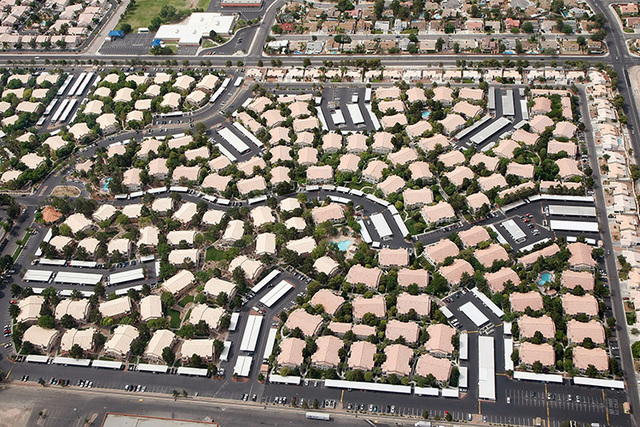New mortgage rules could dampen home sales
A new federal rule could keep thousands of local buyers out of the housing market longer than they expected.
Builders and industry analysts agree it’s not a great time for the new standard, which doubles the time that some homeowners who experienced short sale or foreclosure must wait to qualify for a new loan. The rules, which affect loans backed by the Federal National Mortgage Association, or Fannie Mae, mandate a four-year waiting period for most. Before the standard took effect Aug. 16, such buyers had to wait two years to borrow again.
It’s not yet clear how sales might fare under the rules, which Fannie Mae said are designed to fend off another housing bust by keeping risky buyers on the sidelines.
But the market will feel some fallout, local observers said.
“I don’t think anyone can convince me that, by increasing costs and making loans harder to get, you’re going to help sales,” said Dennis Smith, president and CEO of Home Builders Research.
Fannie Mae makes up at least a third of the local lending market, said Rick Piette of Premier Mortgage Lending in Las Vegas.
What’s more, builders at an August meeting of the Southern Nevada Association of Home Builders said a big chunk of business comes from consumers with prior mortgage troubles.
Danny Welsh, vice president and sales manager of American West Development, said close to a third of his company’s buyers “have had some sort of glitch in the past.”
Lennar Division President Jeremy Parness said many of Lennar’s buyers have gone through short sale or foreclosure.
And Brian Kunec, division president of Richmond American Homes, said the builder’s customer mix includes people with a history of short sale or foreclosure “challenges.”
Still, builders don’t seem to be bracing for big sales dips.
“I’m sure there’s going to be some impact. I personally feel it will be fairly minimal,” Kunec said.
Smith sounded more concerned.
Builders “obviously don’t want to sound the alarm,” he said. “They don’t want things to sound bad.”
The Fannie Mae standard isn’t enough to sink the market, Smith said, but it adds to issues that could keep growth flat.
“The rule is a factor in the overall picture of creating demand that the new-home and resale markets are trying to find to replace investors who have left,” he said.
Smith said some resale brokers have told him they’ve seen softer sales and price cuts this week.
“I think it has affected sales, and we just can’t quantify it at this point,” he said.
Piette said he believes the new standard will hurt closings, though already-tight regulations will head off big cuts. Even before the four-year waiting period, buyers with recent mortgage troubles had to put 20 percent down. And in Las Vegas, where the effective unemployment rate hovered near 25 percent at the recession’s nadir, not many buyers have the savings or home equity to make the cut.
So Piette estimates that roughly 2,000 local buyers could be kept out of the market based on the rule change — not a huge number given overall sales. The market had about 40,000 resales and 7,300 new-home sales in 2013.
Plus, builders will try to adjust.
Publicly traded builders such as Lennar should be OK, because they have in-house lenders that set their own standards and keep closing costs low through incentives, Smith said.
Beyond Fannie Mae, private lenders are getting more aggressive, Kunec told the builders’ association.
“They’re starting to finance condos in Miami again, and lending to buyers won’t be far behind,” he said.
Buyers may already have other options: Loans backed by the Federal Housing Administration let people qualify three years after short sale or foreclosure.
American West, which doesn’t lend in-house, is working with banks to understand how to help consumers through the process, Welsh said Wednesday.
The builder is also rolling out more new homes in prices ranging from the mid-$200,000s to the $600,000s. The company has 10 new communities on tap for 2015, Welsh said. The idea? Give buyers more choices so they can find something they qualify for when they can buy.
New demand could also help, builders said.
With big gains in gaming numbers, visitor volume and taxable sales, the economy is “on the upward swing,” and thousands of new residents will move here in coming years, Welsh said.
“Las Vegas is still a desirable place to live,” Welsh said. “People still want to come here. So buyers with issues to clear up, when they are able to come back, will face competition from more typical buyers.”
Contact reporter Jennifer Robison at 702-383-4512 or jrobison@reviewjournal.com. Follow @J_Robison1 on Twitter.
RELATED
Subdivision delays expected to slow new-home permits
Home ‘flips’ down in Nevada, report shows
Consistent gains mark Nevada housing in first half of ‘14






















